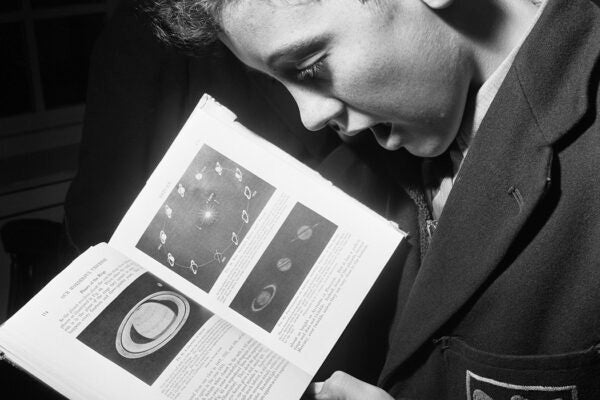Welcome to Ask a Professor, our new series that offers an insider’s view of life in academia. This month we interviewed Lise Dobrin, Associate Professor & Director of the Interdepartmental Program in Linguistics at the University of Virginia’s Department of Anthropology.
Lise Dobrin is a linguist who wrote a technical dissertation on noun classes in the Arapesh language of Papua New Guinea. Over time she was drawn more and more deeply into Arapesh culture and history, a topic first studied by the famous anthropologist Margaret Mead in the 1930s. Today, Lise works with Arapesh speakers to help preserve and revitalize their language, through (among other things) an digital archive. She’s also done historical work on Mead’s fieldwork, and she’s currently working to publicize the life and work of Arapesh speaker Bernard Narokobi, known as the “Thomas Jefferson” of Papua New Guinea for his work authoring that country’s constitution.
Lise has thought deeply about the sociology and politics of language documentation, including both living in the field and working with Arapesh speakers in the US. But the real question is: If she wasn’t a professor, what would she be? To find the answer, read on!
Alex Golub: What’s a factoid/tidbit about your field that most people don’t know?
Lise Dobrin: Linguistic anthropologists don’t take it for granted that the natural units of the linguistic-political order are languages as discrete wholes. Instead, they view languages so conceived as cultural constructions, things people act in terms of because they have a shared belief that they exist. Because of this belief, people often take “slang,” accented speech, or code-switched speech to be unusual, problematic, or wrong. But linguistic anthropologists know that variation and creativity in language is natural and normal. So they start by observing actual practices and try to understand how, and to what ends, they are being used.
Have you ever worked with someone in another field, and what was the nature of your collaboration together?
As an anthropologist I am always collaborating with people from another field! My research on Arapesh language and culture in Papua New Guinea almost always responds both to my own interests and to the things Arapesh people have taught me to be concerned about. When I first started working in Papua New Guinea it pained me to see villagers shifting away from Arapesh toward use of Tok Pisin, Papua New Guinea’s national language. But with time, the villagers’ matter-of-factness about this shift led me to ask what it is Arapesh people value about themselves in relation to outsiders, and how these values are reflected in their linguistic practices. In a similar vein, I am now starting an ethnohistory project to preserve, publish, and annotate a document that was written by Bernard Narokobi. Narokobi was an Arapesh lawyer, philosopher, public intellectual, and statesman who is an important figure in modern Papua New Guinean history. The document tells the story of “who my people are.” I have taken this on because I have the skills and resources to do it and because it is of national historical significance. But I also understand how deeply meaningful it will be for Arapesh people to see themselves represented in this way. The introduction will be coauthored with Narokobi’s son, Vergil Narokobi, who is himself a legal scholar.
What’s the next big thing in your field?
I truly have no idea. I’m just marching to the beat of my own drummer here.
If you weren’t a professor what would you do and why?
If I could wind back the clock and start over I might be a Jewish professional of some kind. A rabbi? A Jewish school teacher? Maybe a scribe?
What’s on your bedside table?
I’m currently reading Julie Schumacher’s 2014 novel Dear Committee Members. The book lets us into the life of a disillusioned English professor by presenting without comment the letters of recommendation he writes over the course of an academic year. His scholarly production may have withered, but his creativity has not; rather, it has been fully reinvested in another genre, one of the staples (alongside reports) of contemporary administrivia. I find the protagonist’s frustrated voice cathartic and in many places LOL funny. When I finish the book I’m going to give it to a colleague, an English literature scholar-turned-professional-







